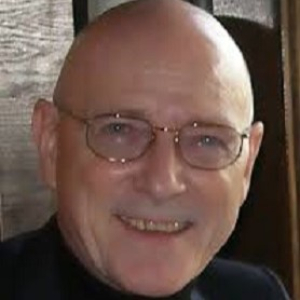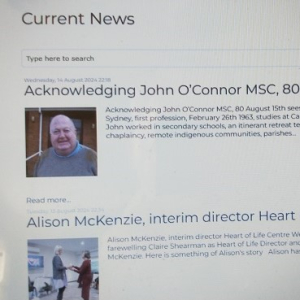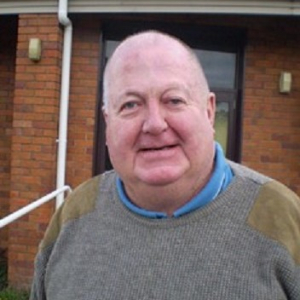Peter MALONE
Australian Province, 1 January – 30 June 2024, Analecta record
Australian Province, 1 January – 30 June 2024, Analecta record
And a welcome to our new contributor,
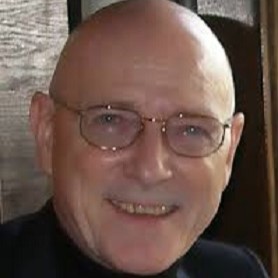
John Walker MSC
Ordinations:
The first ordination of an MSC, Thanh Vu Nguyen, in the Archdiocese of Sai Gon in Ho Chi Minh City, occurred on 29 January 2024. Thanh was ordained to the diaconate.
On 9 February 2024, Kenji Konda MSC was ordained to the priesthood at Our Lady of the Sacred Heart, Randwick. Fr Kenji has been appointed to our mission in Nagoya, Japan.
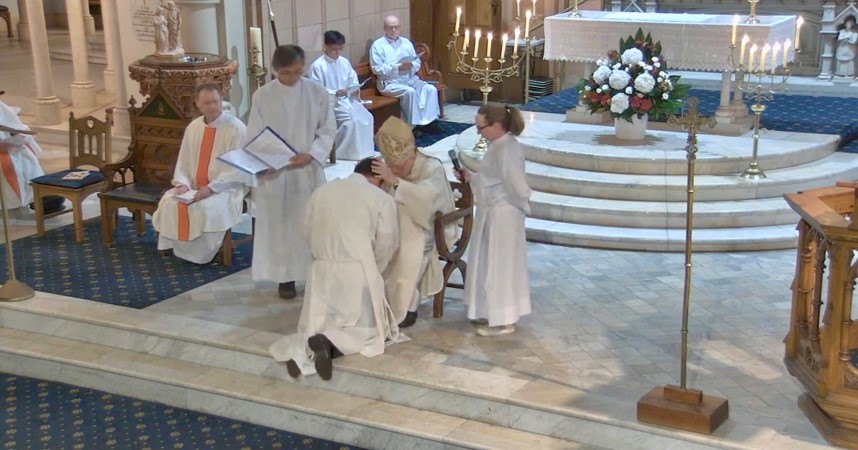
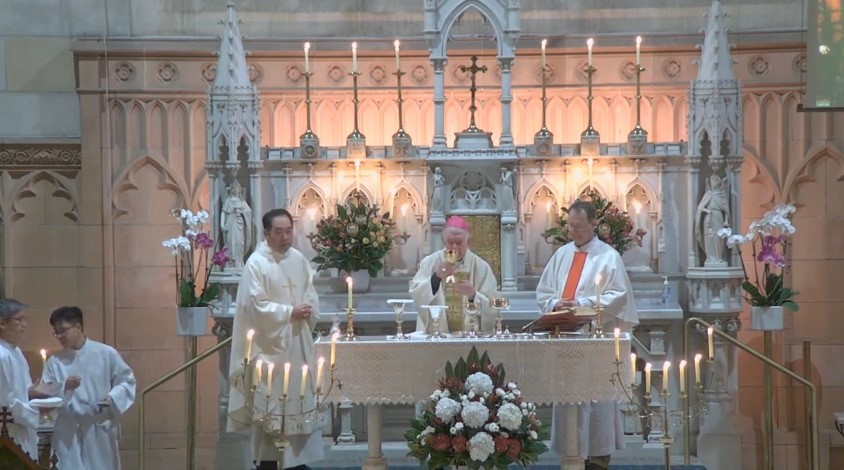
Toan Dinh Vinh Le MSC was also ordained to the priesthood on 25 May 2024 in Nagoya, Japan.
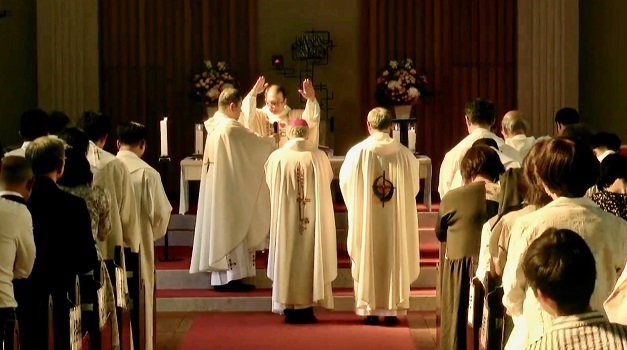
Golden Jubilees:
Steve Dives and Paul McCormack celebrated their Golden Jubilee of profession (12 January 1974), while Paul and Peter Guy celebrated their 50th anniversary of ordination (17 May 1974).
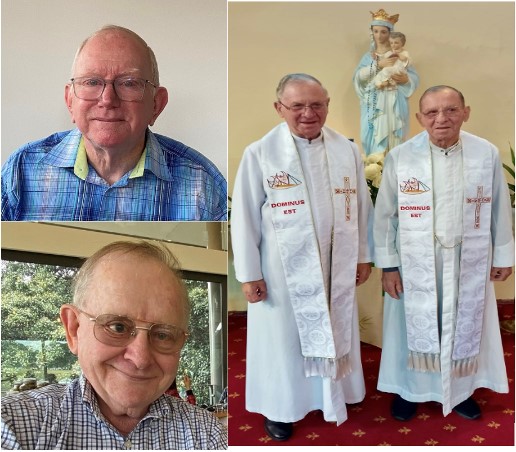
Top left: Paul McCormack, Bottom left: Steve Dives & Right: Peter and Paul Guy
Easter Retreat:
Steve Dives offered an Easter-guided retreat at St Mary’s Towers from Sunday, 26 March to Sunday, 31 March, the first of its kind since the retreat house closed during Covid. It was well attended and received.
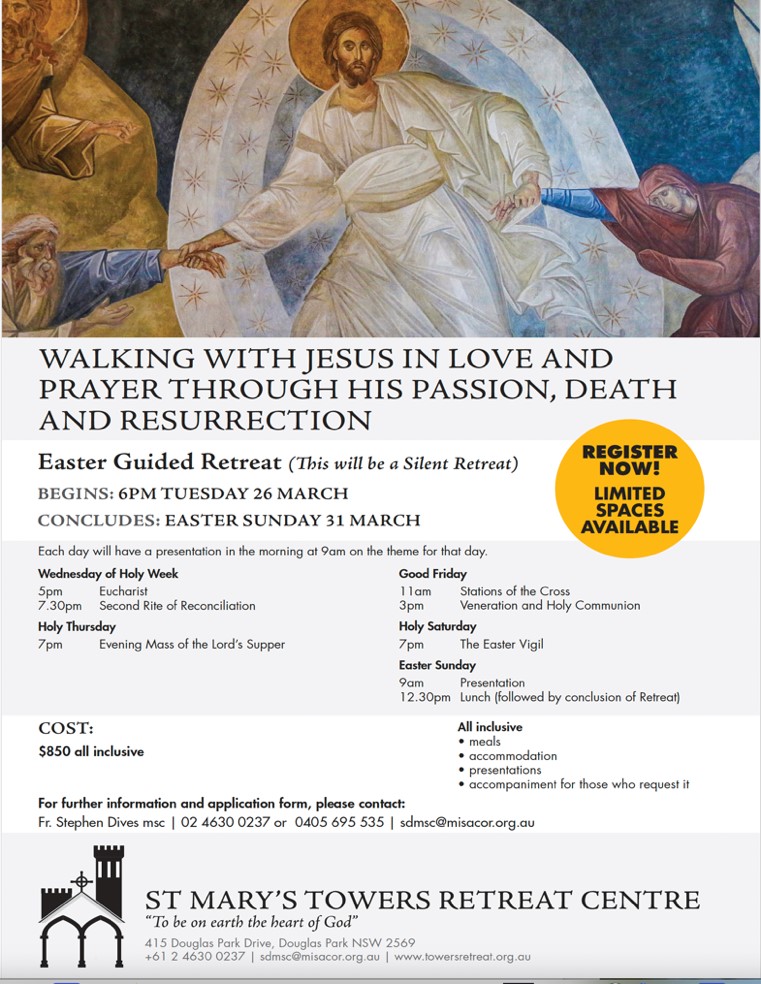
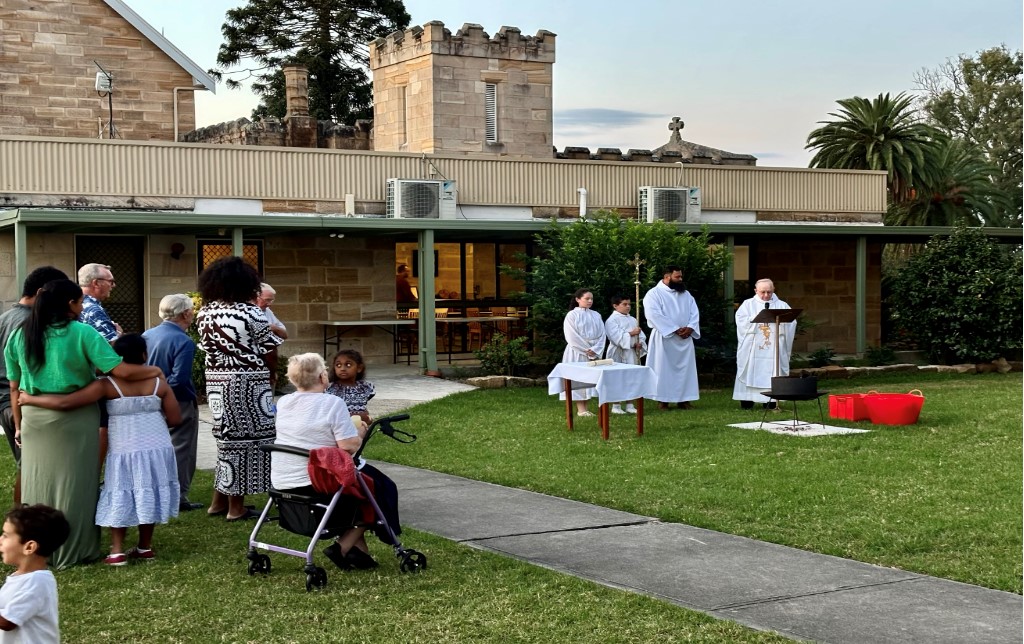
Paul Jennings:
Paul returned to Australia from his beloved PNG some years ago due to ill health and lived in the Kensington Monastery community. However, over recent years, his health continued to deteriorate, and he passed away at the Sacred Heart Hospice on 3 April 2024. Apart from his missionary services in PNG and his time on the Provincial Council under Brian Gallagher and Bob Irwin, Paul was awarded an OBE by the Government of Papua New Guinea for his services to education and the Church in Milne Bay and PNG.
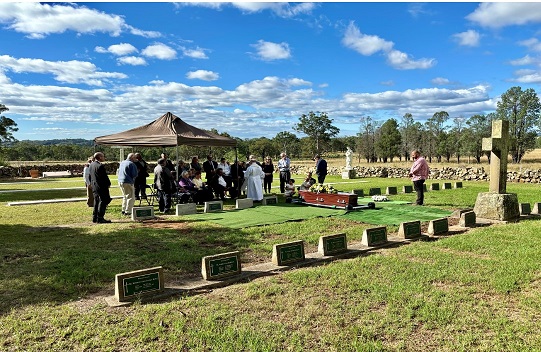

St John the Apostle, Kippax, Canberra parish:
Early in the year, several past serving MSCs gathered in Canberra to celebrate the 50th anniversary of St John’s parish in Kippax. They included Frank Dineen, Michael Fallon, John Bosman, Michael Nithin, Chris McPhee, Kimi Vunivesilevu, Gerald McCormick and Mark Hanns. The Archdiocese of Canberra and Goulburn has asked that bringing together the neighbouring parish of Charnwood proceed under Tru Nguyen, Chung Minh Tran, and Gerard McCormick. Tru has been appointed Parish Priest of Kippax and Moderator of the two parishes.
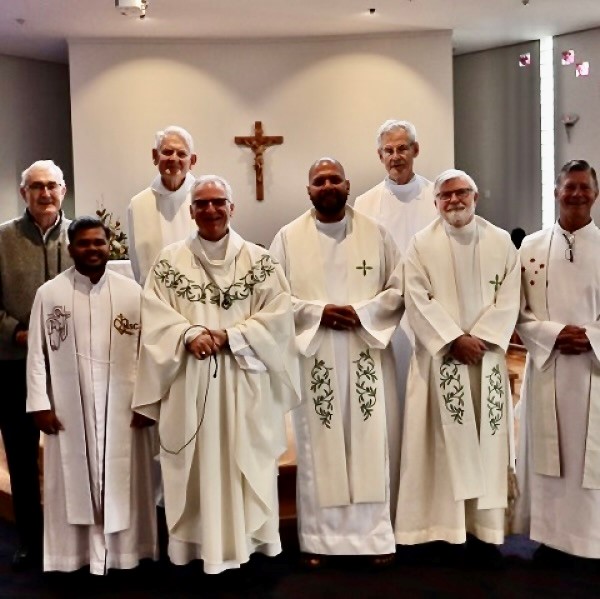
Dominic Gleeson in India in March, facilitating the Ignatian Exercises as follows:
In March 2024, I travelled to Kerala, India, to the place of the MSC Novitiate to facilitate the 30-day Ignatian Exercises for the three (3) young men of the novitiate. Kranthi, Sumanth and Sanu welcomed me wholeheartedly into their novitiate community. During my stay at the l novitiate house where I conducted the retreat, I was supported by the MSC novice director, Fr Kulandai Alexander, msc, assisted by Fr Nelson Machado, msc, who looked after our day-to-day practical needs. The nature of the retreat can be very challenging, and yet I found the men of the novitiate to be very open and well-prepared to journey more deeply into their experience of who God is for them. It also allowed each man to prepare their heart, listening to the Spirit to where God may be leading them in their discernment to take vows as Missionaries of the Sacred Heart.
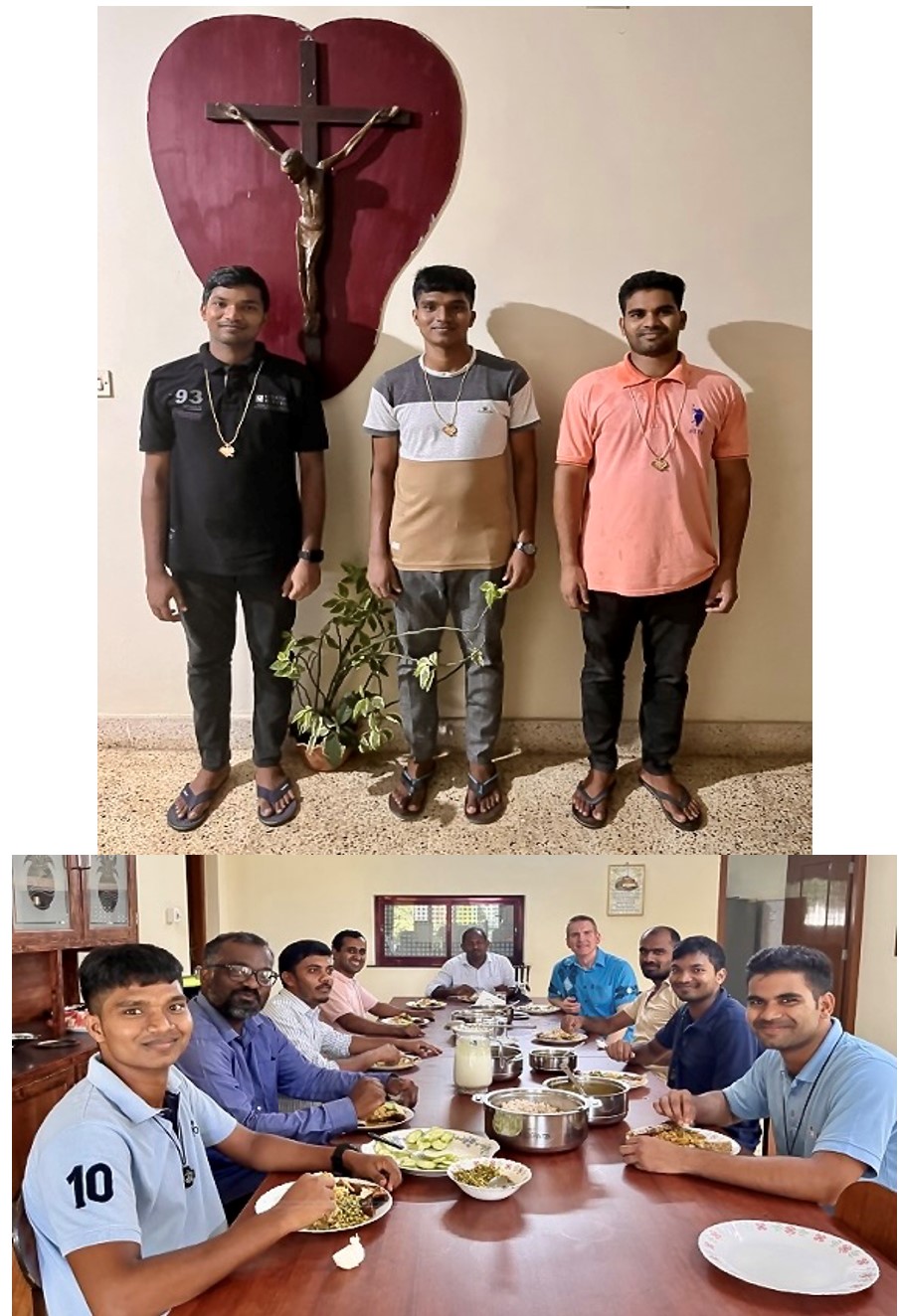
Jim Littleton’s historical contributions:
Jim has been researching various aspects of Australian MSC’s contribution to our mission for over two decades and publishing his invaluable mini projects for our archives. This year, he published a revision of his original book on MSC in The Armed Services, noting and acknowledging especially MSC brothers and priests and armed services before they entered the congregation.

Appointments to date for 2024:
Br John Walker msc – Douglas Park, community ministry and Chapter implementation
Fr Vince Carroll msc – Taroom Parish and Downlands College MSC community
Fr Albert Chan msc – Retirement, Sacred Heart Monastery, Kensington
Br Peter Curry msc – Community ministry, Douglas Park
Fr Gerard McCormick msc – Superior, Canberra and Bowral
Fr Shane Carr msc – Chaplain, Downlands College, Toowoomba
Fr Dominic Gleeson msc – Superior Melbourne/Tasmania
Fr Kimi Vunivesilevu msc – Superior St Mary’s Towers, Douglas Park
Fr Tru Nguyen msc – Parish Priest, St John the Apostle, Kippax
General movement of MSC personnel:
Fr Peter Hearn msc—Peter was appointed to administer the Kensington parish while Fr Terry Bowman, the parish priest, underwent and continues to convalesce at Kensington monastery from major spinal surgery.
Fr Tim Brennan msc – after many years in Rome, where he served on the Pontifical Commission for the Protection of Minors, has returned to Australia. Tim has significantly contributed to establishing a culture of safeguarding throughout the Society, which the 2023 General Chapter affirmed.
Fr Russell Anderson msc – returned to Australia for various health reasons and has been well cared for at Kensington monastery. He visited the Ranch at Darwin but sustained a severe injury whilst cycling and has returned to Kensington.
Fr Brian Gallagher msc – Brian suffered a stroke and has spent considerable time in both hospital and rehabilitation. He has, however, returned to his independent living unit. There has been significant progress, and Brian remains alert and attentive to his progress.
Fr Pat Sharpe msc – after some years in the community at the monastery, he moved to St Joseph’s to receive the extra level of care he needs.
Director, MSC Education:
With effect from 18 March 2024, Chris McDermott was appointed the new director of MSC education, replacing Mark McGinnity. Chris has extensive leadership experience in Catholic education, spanning 23 years, including 15 years as principal of Chevalier College, Bowral. He holds a master’s degree in educational leadership and is an experienced company director, school reviewer, and sessional tutor, the latter with Wollongong University. Chris has been an Executive Member of the National Council of the Laity of the Chevalier Family and the Regional Coordinator – Australia and Pacific – of the International Council of the Laity of the Chevalier Family.
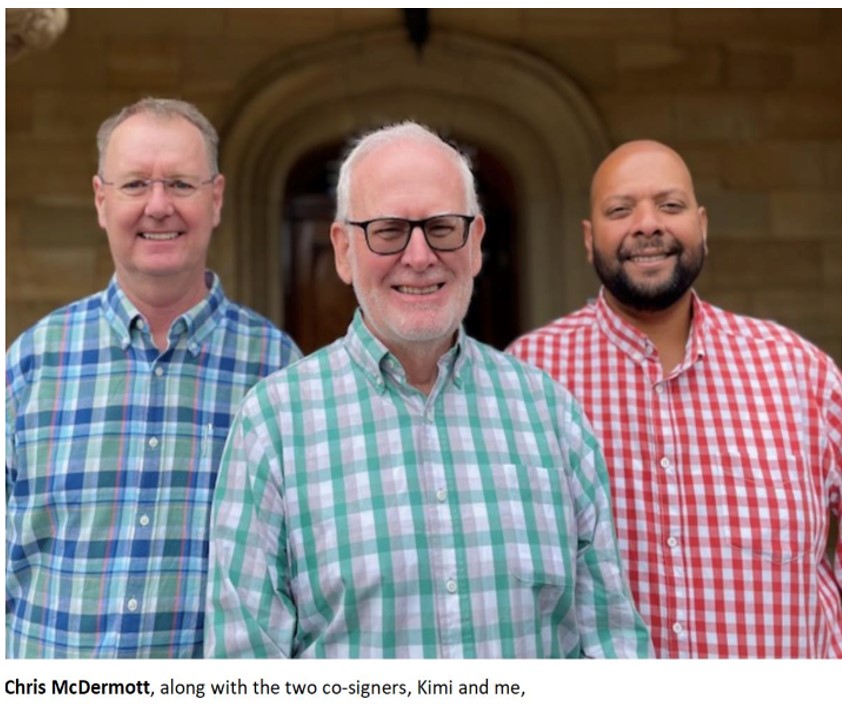
Pat Mara msc – parish priest of Our Lady of the Sacred Heart, Randwick, was invited by Bishop Terry Brady to preach at St Mary’s Cathedral for the Feast of St Patrick.

Heart of Life (HOL):
Following decades since its foundation, working from rented accommodation, the Province purchased a property for Heart of Life in Croydon. The property has been extensively renovated to a high standard under the project management of Br Barry Smith. The renovations were necessary to accommodate the formation programs, seminars and accompaniment ministries offered by HOL. Whilst the renovated premises have been officially opened, much work is needed on the exterior, including the gardens. To ensure the long-term sustainability of Heart of Life, a steering committee was established to recommend a sustainable way forward to ensure a stable future for its programs, and it has been meeting regularly throughout the period. The final report and recommendations have been submitted to the provincial council for approval. The Provincial Council endorsed the key recommendations and has committed to several initiatives starting in 2025. Clare Shearman, who has been the director for the past few years, has resigned, and Alison McKensie agreed to step up in the interim until a new director is appointed. Fr Peter Malone and Fr Khoi Doan Nguyen are on the HOL staff. Fr Krish Mathavan and Br Daniel Magadia are students.
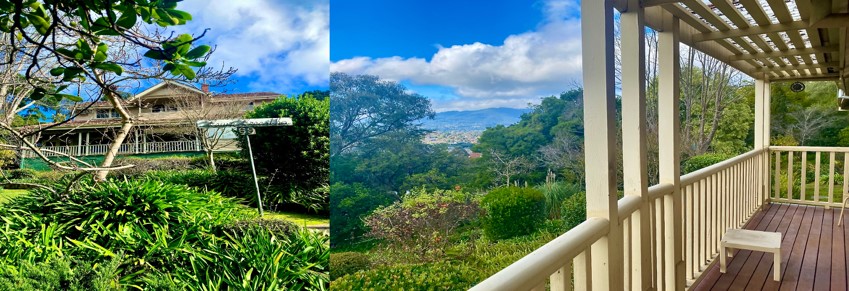
Awards:
Fr Peter Malone, Br John Walker and Fr Bob Irwin have received awards this year. Peter, whose many film reviews and publications have educated us over many decades, was honoured by the International Catholic Film Critics Association (ICFCA). For the second time, Peter won the Outstanding Criticism award for 2023.
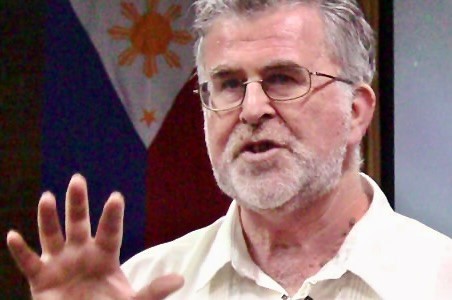
John, an avid amateur photographer since age 9, was awarded first place by judges and peers in an international competition for his photo of a cheetah shot while on safari in the Kruger National Park, South Africa.

Bob was also honoured with the Espirit du Chevalier Medal for his lifelong commitment to MSC education. He was presented with the medal during Sacred Heart Feast Day celebrations at Chevalier College, Bowral, and received a standing ovation from the assembly.
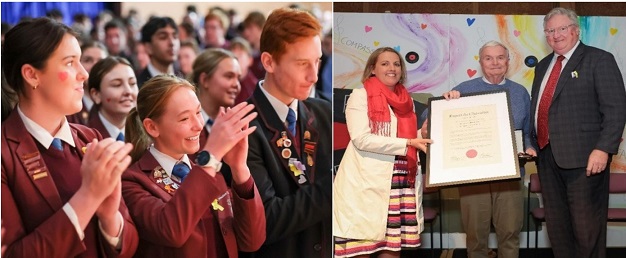
Vietnam:
Our MSC mission in Vietnam continues to grow and expand, with two students graduating from the Jesuit Institute of Vietnam. Vu Quoc Vuong graduated from the Philosophy three-year program, and Le Van Thanh from the Theology four-year program. Vuong will continue his theology studies for four years, while Thanh will embark on a one-year pastoral placement.
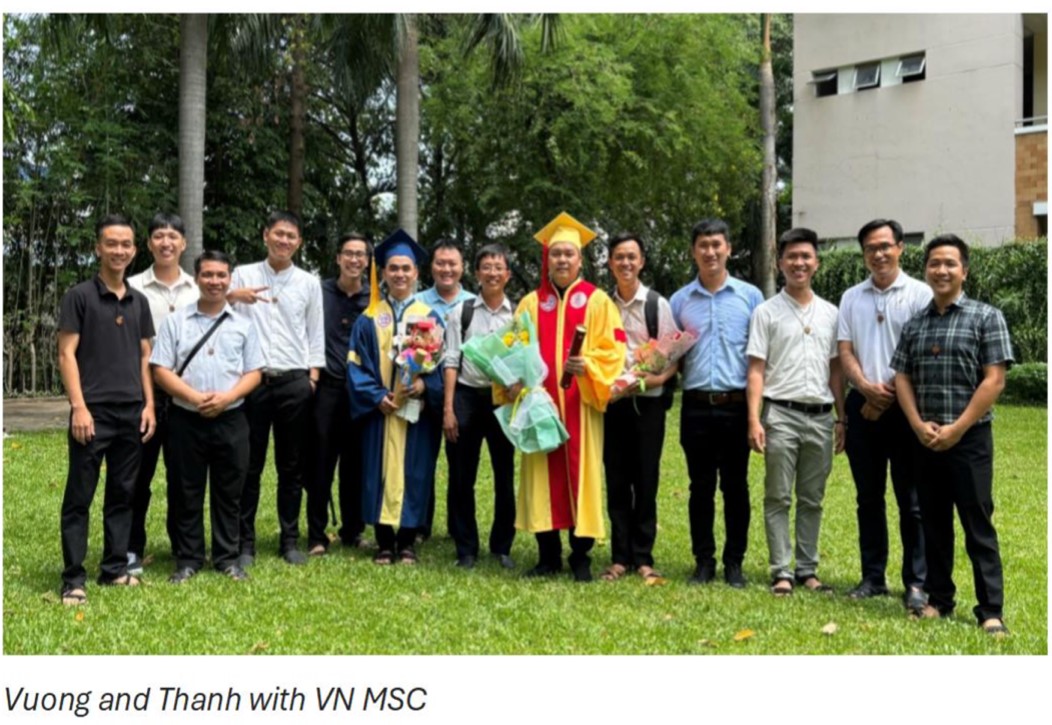
MSC Formation, Blackburn
Conferring of Ministries:
In late March, a ceremony occurred during mass in St Thomas’ church parish to confer the Ministries of Lector and Acolyte, part of the steps towards ordination. Delegated to confer the ministries by the Provincial was Kimi Vunivesilevu MSC, First Councilor, together with Mark Hanns MSC. Those conferred with Acolyte were Trieu Nguyen and Daniel Magadia. The ministry of Lector was conferred on Hoa Tran. Vincent Pham had spent some years in the Parramatta seminary and had already received the ministries there, which meant he could assist Kimi.
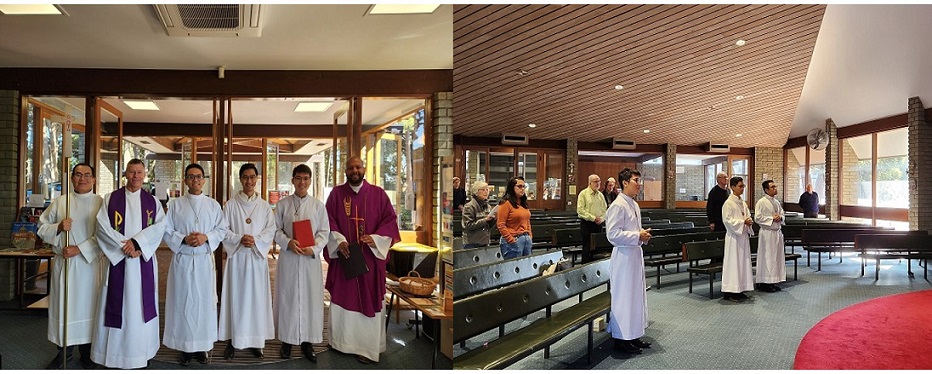
Beginning the Novitiate:
In the afternoon of March 1st, in the parish church of St Thomas, Nang Dinh Vu and Van Long Tran were officially received into the novitiate by Fr Khoi Nguyen, Director of Initial Formation and Novice Director, on behalf of the Australian Province. Many local MSC, parishioners and friends of Long and Nang were present to celebrate this milestone in their journey towards vows as Missionaries of the Sacred Heart.
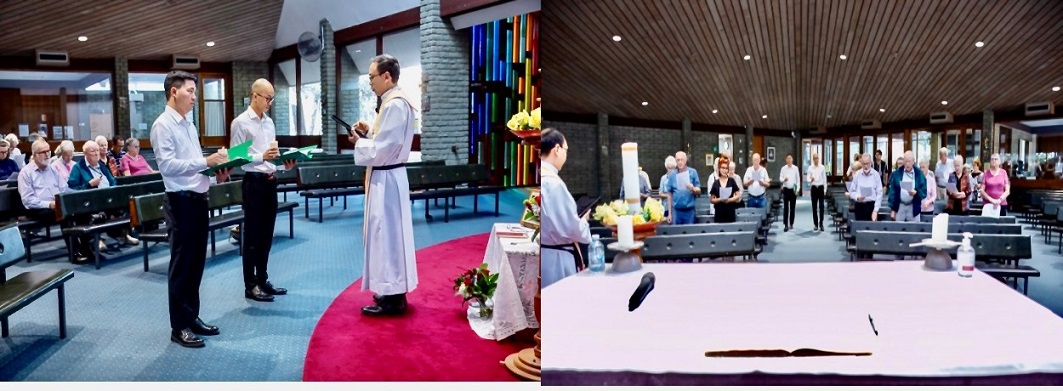
Marmalade
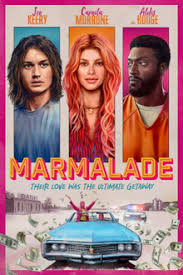
MARMALADE
US, 2024, 99 minutes, Colour.
Joe Keery, Camila Morrone, Aldis Hodge, Wayne Duvall.
Directed by Keir O'Donnell.
Writer-director, Keir O’Donnell, grew up in Australia, had success in the United States as an actor and comedian, and has brought some of this ironic talent to this screenplay.
The film focuses on Joe Keary (Stranger Things), a rather dimwitted young man, in prison after being arrested for robbery, sharing his cell with Otis (Aldis Hodge) and planning an escape with him. And there are flashbacks to his story, love for his sick mother, a chance encounter with a flamboyant young woman, Marmalade, entranced by her, bringing her home. Camila Morrone a is a very striking Marmalade.
The first half of the film consists of the discussions in the cell and the flashbacks. And, then there is quite an unexpected twist. Spoiler alert!
It turns out that the cellmate is an FBI chief who has been trying to track Marmalade for two years after several robberies. He has a support squad, the hostile local policeman in whose jurisdiction the robbery took place. And, there is a collaboration of one of the guards who is part of the team, forever quoting Shakespeare.
The second half of the film has Baron continuing his story for his cellmate, the plans for the robbery, titles up on screen to indicate stakeouts, surveillance, masks (and their stealing them, tri-faced masks which are rather disconcerting to look at), the actual robbery, and Baron and the getaway – but, wallowing in the money, the police arriving and Baron’s arrest, planning to meet Marmalade the next day after his escape.
There is the police pursuit, various leads, Baron buying pharmaceuticals for his mother after a phone call from prison, the police getting more and more frustrated, Baron leaving a message which partly reveals his motivation. And, the final twist, looking at photos from the robberies in the past, and the discovery of who Marmalade actually was!
Initially interesting but not outstanding – but, after the twists, quite a ride!
- The title and expectations, the character, and name, behaviour?
- The prison setting, details of cells, corridors? On the road, the robberies and setting them up? Homes? The musical score?
- The first half of the film, the setup for Baron, his story, the flashbacks, Marmalade, her story, the plans? The need for escape? Otis as cellmate, listening, supportive?
- Otis, his character, the cell, his manner, listening, the money, the plan? And a twist midway through?
- Baron, his age, long hair, sad story, considered as slow-witted, the glimpses of his childhood, Otis hurrying him on, his sick mother and support, the paper delivery, his being sacked because of his long hair? The encounter with Marmalade, the impact, swept off his feet, travelling with her, at home, with his mother, her plans, the idea of the robbery?
- The script twist half way through, Otis and the FBI, the guard at the cell quoting Shakespeare, the other members of the investigation squad, for two years, chasing Marmalade, her bank robberies? The local policeman and his opposition?
- The further story, Baron infatuated with Marmalade, the sexual encounter, Marmalade and her personality, age, dress, manner, stories, laughter, erratic? The details of the plan, the headings on screen, stakeouts, casing banks, safe houses, strategies…? And the actual robbery, Baron as the getaway driver? At home, the money, the arrival of the police, the arrest? Marmalade and her getaway, the plan for 3.30 the next afternoon?
- Otis, the arrangement of Baron’s escape, the laundry basket, the keys of the car, going to his rendezvous?
- Otis and his squad, the pursuit, Baron visiting his mother’s grave, and to the ice cream parlour, their chasing the car, Baron disappeared, the local driving the car? Going to the ticket office, the message?
- Baron, cutting his hair, the phone call from prison, the police tapping it, the pharmaceuticals?
- The background stories, Baron’s mother, Marmalade and the foster homes? The police going to the pharmaceutical boss, his anger, the truth about him, his arrest?
- The final twist, the truth about Marmalade, the truth about Baron, the money, the pharmaceuticals, going to visit his mother?
- The first half interesting but unexceptional, the difference coming in the second half with all the twists and the revelation about Marmalade, the photos, Baron and his spinning the whole tale?
Marinette
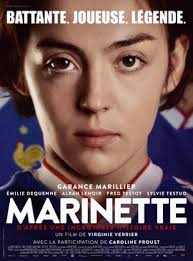
MARINETTE
France, 2023, 93 minutes, Colour.
Garance Marillier, Emilie Dequenne, Alban Lenoir, Fred Testot, Sylvie Testud.
Directed by Virginie Verrier.
A football story. From France, opening in 1987, continuing its story throughout the 1990s and into the 21st century. It is based on the life and career of French football player, Marinette Pichon.
The film appeared at the same time as the Swedish film, Tigers/Tigra, also a football story, focusing on the career of Matt Bengtsson.
While the opening of the film focuses on Marinette as a little girl, her skill with the ball, her relationship with her family, with the school children, it emerges that she is a skilled player and that she has determined that this will be her life. However, the film focuses on the difficulties with female football players and their clubs, the lack of professional recognition (even to the time of the release of this film), the bad comparisons with male football players, organisation, salaries… To that extent, the film is an expose of French treatment of female players.
However, Marinette is scouted by American clubs and moves to the US, achieving great success, some failures, especially concerning Olympic Games possibilities, but persevering with her play as well as with her campaigns. And, there are rivalries in the French team, whereas she is welcomed in the United States.
Marinette has been at the forefront of gay rights, gay marriage, and the film dramatises these aspects of her life – and highlights them at the end of the film.
- A football story? European football? Female players, the situation, organisation, pay?
- A French story, France and its devotion to football, men’s teams, women’s teams, contrasting organisation, payment, professionalism?
- This story based on an actual character and her life and career? As a little girl, fascination with football, going onto the field, the coach, encouraging her, her play, reactions? Support from her mother and sister? Aiming to be professional?
- Growing up, the years passing, her commitment to football, training, skills?
- Her working with the French team, the management, the other players, amateur status, training sequences, playing sequences, spirit of the team, clashes, the coaches and support? French play, success, but women’s sport as minor?
- Scouted by the Americans, her transfer to the US, language limits, the welcome, the professionalism, the training, the matches, the ups and downs, missing the Olympics, her perseverance, her skills? With management, with coaches?
- Marinette and her personal life, the attractions, the relationships, gay rights issues, same-sex marriage, her life, public support and campaigning?
- Marinette and her family, the continued support of her mother?
- Finishing her career, record set, achievement? And into the future and her social campaigns?
Ellizabeth Taylor: the Lost Tapes
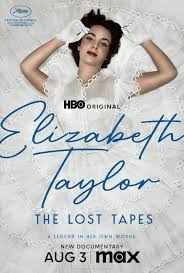
ELIZABETH TAYLOR, THE LOST TAPES
US, 2024, 100 minutes, Colour.
Directed by Nanette Burstein.
It is something of an understatement to say that Elizabeth Taylor was a significant world figure in her day. She spanned the decades, born in 1932, moving to the US at the breakout of World War II, beginning her film career in 1943 with Lassie, come home, consolidating it, Riding in the British races, National Velvet, a very strong career into the 1970s. He died in 2011.
The lost tapes of the title refer to interviews with Richard Meryman, 40 hours which took place in 1964, then placed in an attic and only discovered by the interviewer’s wife in 2019 and made available. Documentary director, Nanette Burstein, has organised a great variety of segments from the tapes to make Elizabeth Taylor’s narrative about her life and career up to this period, material and 1966, culminating in her appearance in Who’s Afraid of Virginia Woolf and her winning her second Oscar for that performance.
While the voice-over is significant, the director has been able to obtain a great range of visual footage of the actress, of her life in public, aspects of her life in private, interviews, social photos, and, clips from a great number of her films. This is always something which makes a favourable audience want even more.
There is great emphasis on how beautiful Elizabeth Taylor was as a little girl, as a teenager, as a young adult, but voicing dislike of her schooling at MGM studio – moving into adult roles, even as Robert Taylor is wife in The Conspirators, when she was 18. And, there is a lot of footage and her own observations about her first marriage to hotel heir, Nicky Hilton, the initial happiness, his character, her moving towards a divorce. Then, for the curious, there is her marriage to Michael Wilding, the British actor some decades her senior, some years of happiness, dependence on him, continuing her career but dissatisfied with the roles that MGM was giving her. And she had two sons. The tapes offer observations about Michael Wilding, the strains on their marriage, and her divorce when she was still in her mid-20s.
For those interested in her comments about her further marriages, needless to say, there is quite a great deal, especially about Mike Todd, enjoying his so-called lack of education, oddball style and humour, his achievements, and happiness with Elizabeth Taylor, the birth of their daughter, the tragedy of his accidental death in a plane crash.
For audiences wondering about Eddie Fisher (and not favourable to him), her comments about him as a friend of Mike Todd, Debbie Reynolds being her bridesmaid, the talking with Eddie Fisher, Mike Todd’s friend,, his infatuation with her, the rapidity of marrying Elizabeth Taylor only hours after the divorce from Debbie Reynolds – Elizabeth Taylor indicating the Debbie Reynolds that made to something of a show of her shock. Finally, Elizabeth Taylor says she was not in love with Fisher but he was a good friend, especially talking about Mike Todd.
There is Elizabeth Taylor’s illness, highlighting some of her roles, especially the support of George Stevens in both A Place in the Sun and Giant, many sequences, background, James Dean, and her friendship with gay actors, Rock Hudson, Montgomery Clift, a lifelong bond with Roddy McDowell who makes commentary throughout this film. There are scenes from Suddenly, Last Summer as well as her complete dislike of Butterfield 8 – and the scene of her accepting her Oscar for this performance.
Cleopatra. Richard Burton.
In fact, there is quite a lot of background about the making of Cleopatra, initially with Ruben Mamoulian and, then Joseph Mankewiecz, scenes with Rex Harrison, then the arrival of Richard Burton, her illness, delays with production, starting again with so many consequences in recasting, many scenes from the film itself, especially her entry into Rome with the cast of thousands.
Of course, audiences will be wanting to see the relationship with Richard Burton, here Elizabeth Taylor’s commentary on meeting him as a badly hangover drink, the bonding between them, the breakup of his marriage, many scenes of them together, in other films, socially, with their children bonding with Burton, and her saying that the marriage would last for 50 years.
And, then being hounded by the paparazzi, condemned, even with a glimpse of John XXIII in the Vatican, but some of the winning over public opinion.
Those interested in Richard Burton, he appears in many sequences, interviews, and helps audiences to understand his personality and his decisions about alcohol, about marriage, his career.
The filmmakers have added further material, some of Elizabeth Taylor’s performances in the 1970s, her drug and alcohol addiction and rehab, but, especially her emergence at the time of AIDS, support of Rock Hudson, her speeches, speeches to Congress, her work and foundations.
Which does provide something of a triumph for the actress so often in the limelight, who makes some wry comments about her being a star celebrity commodity, contrasting with her desire to be an actress. The range of her marriages, the six years with the Senator included, the marriage with the bodybuilder not included. But, she moves from a world of glamour and publicity to a reputation of social concern.
Studs
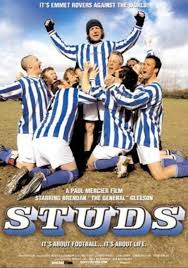
STUDS
Ireland, 2006, 90 minutes, Colour.
Brendan Gleeson, David Wilmot, Liam Carney, Domnhall Gleeson.
Directed by Paul Mercier.
This is a very Irish film – and audiences will need a fine-tuned ear to take in all the Irish accents and language.
It is a comedy-drama. The focus is on a local football team, middle-aged men who train and play together, rather a bickering group as they play. There are various football scenes – and of their bad showing.
At the centre of the film is a bluff and burly man, Brendan Gleeson in a typical role, responding to an advertisement from the team to become their coach. They do accept and what follows is a lot of training, some shrewd tactics, some success, moving towards the top of the ladder.
The film shows in some detail several of the central characters (one of whom is played by Brendan Gleeson’s son, Domnhall Gleeson).
The coach is not who he seems but he does have success with the team, their finally forcing him to drink in celebration and, as we expected, his falling off the wagon. And, questions as to where he will go and as to where the team will go.
- Irish comedy? Irish drama? Football? Middle-aged men?
- The Irish town, the soccer field, the dressing room, the roads, houses, atmosphere, industry? The musical score?
- The title, the men and their age, image of themselves, their work, playing football, enjoying it, wanting to win, down on their luck, the Thursday night practices, with the car headlights, the particular characters, interactions?
- The football sequences, the play, the defeats, the practice, improving, victories? The hard practice sequences?
- The men, Bubbles and his voice-over, leadership, the other members of the team, their work, personalities, clashes, comic touches, serious touches, the discussions in the dressing room? The character of the Prophet, quoting the Scriptures, watching, coming in, his skills, Bubbles finding his hut, the death, his playing and success?
- Walter, Brendan Gleeson character, his arrival, the ad in the paper, the player putting it in, the qualifications? The identity of Walter, the background, playing, reputation, tough? His argument, their accepting him? His attitude towards the men, the demands, the tough practices, the matches, the pep talks, the strategy of losing one match to win the next in the cup? The gradual improvement, the successful matches, the buildup to the final, the losing? His reaction?
- The background for the development in the town, the field becoming private property, the clashes?
- The range of men, the film not offering any family background? Just seeing them with their interactions amongst themselves, erratic behaviour?
- Bubbles, the true identity of Walter, keeping it secret, the team forcing him to drink, his alcoholism, taking home, the wife angry at him, the glimpse of the sun? Keeping the secret?
- Walter, on the road, the final talk with Bubbles, the alcoholic, taking an identity, his achievement, walking on?
Tigrar/ Tiger
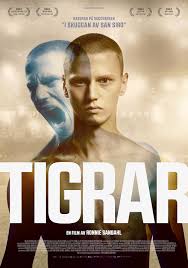
TIGRAR/ TIGER
Sweden, 2020, 116 minutes, Colour.
Erik Enge, Alfred Enoch, Mauritzio Lombardi, Frida Gustavsson.
Directed by Ronnie Sandahl.
A sports film, based on an actual character and his experiences.
Matt Bengtsson is a young Swedish football player, age 16 going on 17. He is acclaimed locally, is chosen to play for Inter Milano.
He is a young man, rather morose in temperament, devoted to his mother, his father absent.
While there are football sequences and many training sequences, the film actually offers a criticism of players’ spirit within top teams, their not accepting newcomers, taunting and touches of bullying, the repercussions for the player, support from officials. Erik Enge is quite persuasive as the young footballer. British actor, Alfred Enoch (all the Harry Potter films), plays his supportive friend. There is also a relationship with a model, leading to the challenge of what the player really wants, complete dedication to his sport or a full of life.
This is a film particularly for European audiences who follow the major football teams and competitions, interested in an expose of life behind the matches. Once the player has made a decision, he acts on the diary that he has been keeping and becomes a writer, publishing his expose.
At much the same time, a similar film was released from France, Marinette, about the difficulties for women football players, their not being treated professionally, and the central character being brought to the United States and being successful there.
- A film based on actual characters and events? But dramatised?
- A Swedish production, Swedish story, the initial Swedish settings, home life, football, celebrations, transition to Italy, Inter Milano, the team, accommodation, training, matches, spirit? And the experience and crises for Matt?
- The story of Matt Bengtsson: his ambition from childhood to be an international football player, encouragement by his parents, his skills, 16 turning 17, slight build, his happiness in being chosen, writing his journal, farewell to his mother, travelling to Italy, the reception, the manager and the interview, the silence, the affirmation, supervised by Luca?
- The promise of the room, his having to share, sitting at a table, the player walking off, the snide remarks, the bets that he would leave, no team spirit amongst the men? The practices, his steady discipline of exercise and training? The language issues? Travelling in the bus, his being ignored? On the field, the games, the injuries?
- On the bus, sitting next to Ryan, Ryan as friendly, talking, listening to the music, giving advice, becoming a confidant? The buying of the car, Matt unable to drive, underage, the choice of the car, Ryan driving? An experience of friendliness?
- Matt and his achievement, the year, playing, criticisms, a chance to play in the main match, the lower teams? Waiting on the bench, warming up, playing, the clashes?
- Going to the club, the encounter with the model, talking, going out, friendly, the sexual relationship? The strictness of the club, curfew, his going out, in the car, caught, the warning? The encounter at the club, his explanation about his ambitions? Her not being able to understand his commitment? The breakup?
- The background of his father, not coming to the celebration, his mother’s attitude, the message from his father, the phone call, the half sister, emotion?
- The depression, writing in the diary, the cumulative effect of the team, Ryan and his being sold off? The dismissal of the player and his depression, climbing onto the building, urging him down? The interviews with the manager, his affirmation, wanting him to commit? Matt and his refusal?
- The depression, walking on the road, hit by the truck, in hospital, the lesser injuries, his mother coming, the story of epilepsy? Her being prepared to go along with it, changing her mind? His determination?
- Ultimate plea, his decision not to continue? His driving in his car?
- The information, the aftermath, his diary, his writing the book, the expose of life behind the facade of the matches and victories, management, hostilities, lack of team spirit, exploitation?
Fuchsia Libre
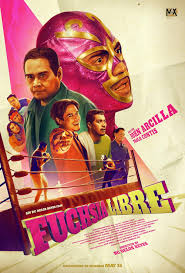
FUCHSIA LIBRE
Philippines, 2024, 112 minutes, Colour.
John Arcilla, Paolo Contis, Khalil Ramos.
Directed by RC Delos Reyes.
Best to check Filipino audiences and reviewers to gauge how this film communicates!
The screenwriters must have had lots of ideas for plot lines – and decided to include them all. Which means then that the film goes in all kinds of directions, gathering themes from a range of Filipino movies. Then the title eventually emerges.
The film opens nicely with father-son relationship, the little boy, his policeman father enthusiastically supporting him at boxing training, his moves. However, very unsubtly, we see the little boy attracted to another little boy and suspect instantly where this could lead. So, there is the exploration of the gay theme in Filipino society, the macho father and his disappointment in his son, the son coming out to his father and being rejected, and teaming up, running a gym, with a group of very, very camp friends.
One of the difficulties of this theme is that the writing and the performances would indicate that it is the work of straight writers and actors doing an impersonation of gay and camp, rather than coming across authentically. There are camp jokes. But, perhaps surprisingly or not, there is not an indication of any kind of intimate gay relationships or behaviour, just the camp and some cross-dressing.
So, we focus on the central character, seen as a boy, rejected by his father who bashes up a young man friend, witnessed by the police chief, and losing his possibilities for promotion, and as the film moves forward 10 years, working in car repairs.
The son is effective in his gym, training, enjoying his friends’ company, but then a twist in the plot as a landlord threatens to take over the building and the need money to buy the property.
The film then becomes a martial arts story, but especially in underground and illegal multi-martial arts fighting. Our hero then is persuaded to go into the fights to get the money to pay for the building, but wearing a mask, calling himself Fuchsia Libre, very camp in his behaviour and setting expectations, losing at first, but then winning.
The film then becomes a police undercover investigation, the hero’s father going undercover, becoming adviser to the psychotic young boss of the fights, criminal activities, drug deals, called The Patron. His outbursts and fanaticism and glee sadistic humour and, embarrassed, killing those he disapproves off, have to be seen to be believed. The father, not knowing that Fuchsia Libre is his son, decides to promote him as a fighter in order to further infiltrate the criminal gang, ultimately to get copies of financial dealings from his computer.
Which builds up of course to quite a climax, an opponent in a fight pulling off the mask, the father seeing his son, trying to warn him off fighting, the final desperate fight, the father supporting his son, the Patron going berserk, and an emotional fight and shootout.
And, as expected, father-son mutual reconciliation, forgiveness, love, and the father’s acceptance of his son as he is.
(The Filipino critics were not kind to Fuchsia Libre, too many themes are not always convincing.)
Robin's Wish
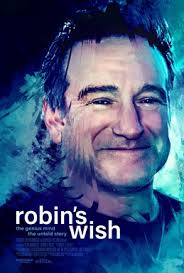
ROBIN’S WISH
US, 2020, 77 minutes, Colour.
Directed by Tylor Norwood.
In 2018, four years after the death of actor and comic, Robin Williams, a tribute documentary was produced with an indicative title: Robin Williams: Come Inside My Mind. It was an attempt to explore how Robin Williams ticked, his intelligence, his wit, his capacity to entertain. But it also raises the issues of addictions and the consequences.
This documentary, Robin’s Wish, was released two years later. The basic insight of the film is the revelation that Robin Williams was suffering from a neurological disease, Lewy Body Dementia, but little is known about it. And, throughout the film, there are a number of medical experts who explain the condition, how it affects the brain, the psychological consequences, the influences of behaviour, seemingly erratic.
While the film does fill in a lot of the biography of Williams, is a boy, his growing up, his talent for acting, his comic talent, improvisation, his film opportunities, his life in Marine County, testimony from close friends over decades, several of his neighbours, the title highlights his wish to entertain. However, with many interviews with his wife, Susan Schneiders, the descriptions of his last years, the effect of the disease on him and day-to-day life, as well as director, Shawn Levy with extent of comment about Williams on the set of the final Night at the Museum film provide insights into what was happening in Robin Williams brain, in his mind..
Robin Williams was well liked, is admired for his screen performances, both serious and comic, never short of a word, stunning people with his capacity for improvisation. The world was saddened at the news of his death. This documentary goes some way to helping audiences understand what goes on in of life someone in the public eye, well-known from the media, but struggling with physical and psychological issues which can lead to death.
Current News… Succession.
Current News… Succession.
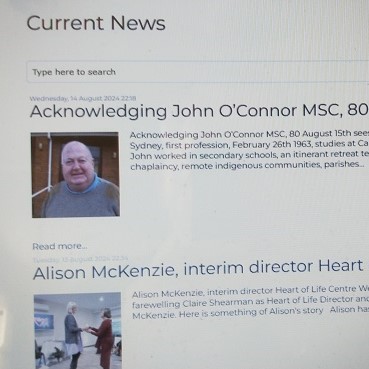
Succession. A word now well-known through the popular television series.
But, succession in the context of our website?
Instead of third person, I am writing now in the first person as Peter Malone, personalising these reflections, with some photo-realism of where Current News is posted!!
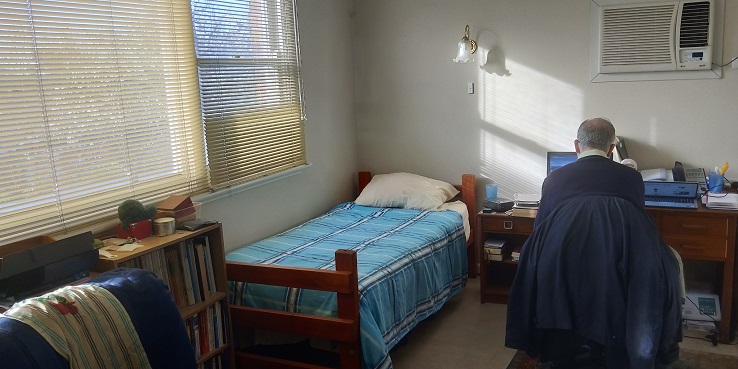
August 17th is the 14th anniversary of my starting work on Current News on this site, shrewdly led on by the then provincial, Tim Brennan.
This means that I have posted, in round numbers, 300 stories each year, which tells me that would mean a total of at least 4200 items. I had not thought of it until recently when somebody used the word “discipline” about the regularity and constancy. This made me realise that I have posted six items a week, wherever I was – but mainly at home at my computer, at the desk or, as now, in my armchair, 10 PM each night, listening to Philip Adams on Late Night Live (but he has now retired).
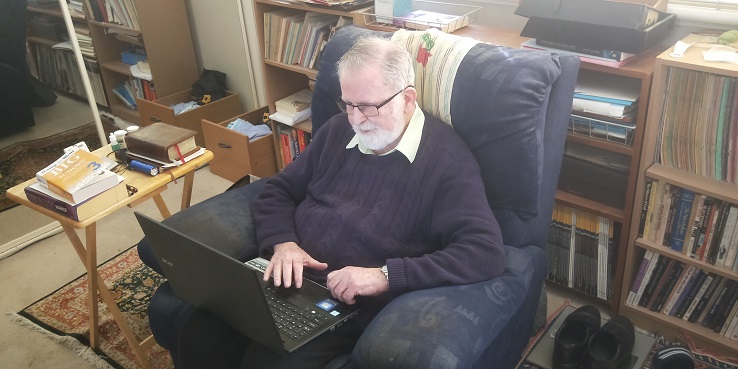
I noticed on the website last week the news that I had turned 85. And, so, the thought about stopping. Hence, succession.
I will continue until the end of this year. I am happy to say that there is a good plan in the works for continuing the Current News. Also in the works is a re-vamping and updating of the site. So, as you do, “Watch this space”.

Planning for the future
I look back and realise that all the posts are still there on the site, something of a diary/archive of life in the Province and beyond, items that are still available through the search engine.
And I have enjoyed something like investigative journalism, an eye and an ear for stories, leads, connections, googling for stories and photos, planning ahead, now and again having to improvise, keeping alert.
Because of the work on the website, another task was writing the Analecta entries on each year of the Province, history and publications. I now have a successor. His first entry appears tomorrow…
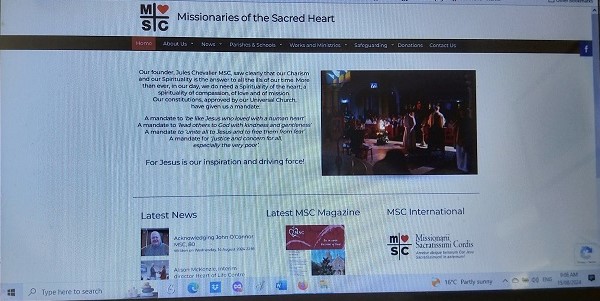
Acknowledging John O’Connor MSC, 80
Acknowledging John O’Connor MSC, 80
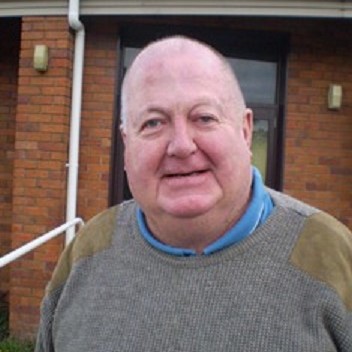
August 15th sees the 80th birthday for John O’Connor, from Sydney, first profession, February 26th 1963, studies at Canberra and Croydon, ordained, May 9th, 1970.
John worked in secondary schools, an itinerant retreat team to MSC schools across Australia, hospital chaplaincy, remote indigenous communities, parishes and overseas pilgrimages.
Here is a story from our archives. Acknowledging John, behind the Poorman Masses of the 1960s and 1970s.
In 1969, some 55 years ago, “The Poorman Masses” began as part of celebrations for the Feast of the Sacred Heart at St Patrick’s Cathedral in Melbourne. After 10 years, the MSC care of the Sacred Heart Day needed new energy; but, how this was to be done was a real conundrum.
“Poverty is painful – even in Melbourne” became the theme that challenged the common belief that poor lived in foreign nations. Religious sisters ministering in public high rise tower housing found it was sadly too common.
In response to this, bringing gifts for the poor during the Eucharist on Sacred Heart Day took seed. The idea of asking people not only to attend Masses at the Cathedral but also to bring gifts for the poor seemed to be fool-hardy. Why make the task harder? The dean of the cathedral was sceptical that even one tea chest would be filled when told a dozen d been provided by a local business to place around St Pat’s.
Cyril Hoy manager of Ozanham House, Vinnies’ shelter for homeless men in Melbourne was enthusiastic in his support. St Vincent de Paul was a vital partner of Poorman Masses, especially in distributing gifts to the poor.

A vital element of the promotion was a catchy title. The expression “a poorman’s …” denotes doing well with limited choices – a poorman’s Merc. “Poorman’s Mass” was edgy. “Poorman Masses” was more accurate and easier to say.
The media were contacted – including cinema advertising, radio, TV stations and press. Catholic schools received promotional material requesting they support the Youth Mass in the morning; but was it all whistling in the wind?
Friday 13th finally arrived. As the bus bringing MSC seminarians from Croydon neared the cathedral, groups of school students were being herded along the footpath by teachers; each child clinging to tins of food or packets of breakfast food. What a welcome sight! There was at least this much response.
By the end of the day, there were big piles of food and clothing – including fine business suits newly dry-cleaned inside the cathedral. A pound of butter happily survived the day on the cold tile floor of the cathedral. The offertory procession was marked by Cardinal Knox wearing his mitre, receiving boxes of cereals and cans of baked beans which were placed around the altar.
At the end of the day, Cyril Hoy estimated about 10 tons of food and clothing had been donated during the day. He calculated the number of trips in his battered Holden station wagon weighed down to the axles to Ozanam House. Donated food was enough for a year at Ozanam House. What might result if all parishes hosted their own Poorman Masses? Would this detract from the Sacred Heart Day at the Cathedral? It was decided it be best that all parishes be involved in future. This of course, meant much dedicated organization by MSC students and priests from then on.
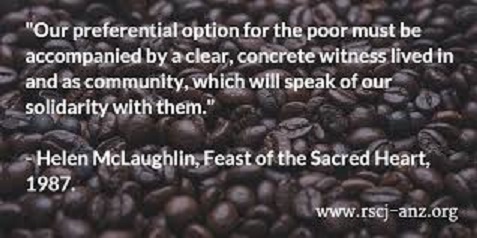
What emerged at the end of the day was a conviction that regardless of the work and the risks taken, this result was the work of the Spirit; success or failure was irrelevant.
Serving the poor is a work of love – a glass of water in his name; do unto others as you would they do unto you; whatever you did to the least, you did it to me … such are familiar Gospel axioms.
